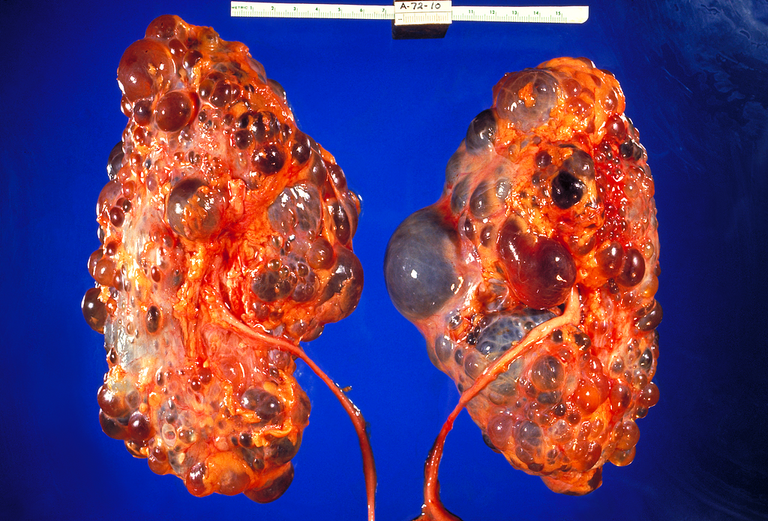Many of us harbor habits that have become part of our daily lives, seemingly harmless at first glance. However, some of these routines can have alarming health consequences if left unchecked. Today, we delve into a series of medical case reports that shine a spotlight on the perilous habit of excessive soda consumption.
There are instances of individuals consuming as much as 4 liters or even more of soda per day, and this practice becomes a continuous cycle. Some have even gone to the extreme of replacing water with soda. While this may initially sound innocuous, the long-term effects are anything but.

Imagine that a person takes a high amount of soda daily because they love the fizzy feeling behind their tongue, and the fact that it makes them happy and active. Soon he replaced water with soda as years came but then realize that the more soda he took, the more thirsty he became, and frequent urination became a thing.
This individual may notice an insatiable thirst and a relentless urge to urinate, symptoms that are easy to dismiss initially. However, as the soda consumption continues, their stomach begins to ache, their cognitive function becomes foggy, and they even experience stuttering when attempting to speak. Still, the gravity of the situation eludes them until a fateful day when they collapse at work. Could this collapse be attributed to their prolonged soda intake?
It was seen that when he collapsed, he had a diabetic coma as the blood sugar of the patient has been extremely high, coupled with a high blood pressure and high cholesterol. You could imagine that the doctors do not know about the high amount of sugar being taken, but advises him to clamp down on sugar and do more exercise but as you would expect with addiction, he couldn't leave it. Let's say he decided to get the one with the label zero sugar, along with the original one, and things got worse.
This time, he experience more bladder movement causing him to urinate more often, then cramping in his calves which then led to inability to move and he collapsed. At he hospital, he had muscle weakness, and this coupled with his high blood pressure, diabetes, and high cholesterol.

Blood tests uncover a condition known as Hypokalemia, characterized by dangerously low levels of potassium in the blood. Excessive sugar consumption can deplete potassium levels, leading to hyperglycemia and placing undue stress on the kidneys, potentially causing damage. The buildup of waste in the bloodstream, which should have been efficiently filtered out, further exacerbates the situation. Muscle weakness can also be attributed to Rhabdomyolysis, the breakdown of striated muscle due to hypokalemia.
In cells, we have potassium being the abundant while outside the cell, sodium is abundant. When muscle contract, sodium from the outside rushes in to aid the contraction and potassium rushes out. When the muscle relaxes potassium rushes in and the calcium rushes out but in the case of a patient suffering from hypokalemia, this cannot be possible because there is a lack of potassium in the blood. This causes the muscles to breakdown and get into the blood of the patient. When potassium is released from muscle cells for contraction it dilates the blood vessels causing for more blood to flow into the muscles.
Patients with hypokalemia may also experience diabetes insipidus, as the kidneys struggle to concentrate urine, resulting in excessive water loss from the body. Soda, laden with sugar and caffeine, essentially takes on the role of sugar and caffeine overload in the body. While many have heard about soda's link to diabetes, conditions like hypokalemia often remain underdiscussed. Excessive sugar consumption can lead to elevated blood sugar levels, insulin resistance, and diabetes. The combination of caffeine and sugar overload can precipitate a cascade of health issues, including hypokalemia, nephrogenic diabetes insipidus, polyuria, rhabdomyolysis, acute kidney injury, sudden onset muscle weakness, and electrolyte abnormalities. If left untreated, these conditions can potentially prove fatal.
It is crucial to recognize the hidden dangers of excessive soda consumption. While it may provide momentary pleasure, the long-term health risks are severe. This post serves as a stark reminder that moderation and informed choices are essential when it comes to our dietary habits, as our health ultimately pays the price for any excessive indulgence.
Reference
https://www.ncbi.nlm.nih.gov/pmc/articles/PMC2481241/
https://www.ncbi.nlm.nih.gov/pmc/articles/PMC4453309/
https://www.niddk.nih.gov/health-information/kidney-disease/diabetes-insipidus
https://bmcnephrol.biomedcentral.com/articles/10.1186/s12882-021-02465-0
https://www.ncbi.nlm.nih.gov/pmc/articles/PMC5347489/
https://emedicine.medscape.com/article/1007814-overview
https://www.ncbi.nlm.nih.gov/pmc/articles/PMC292322/
